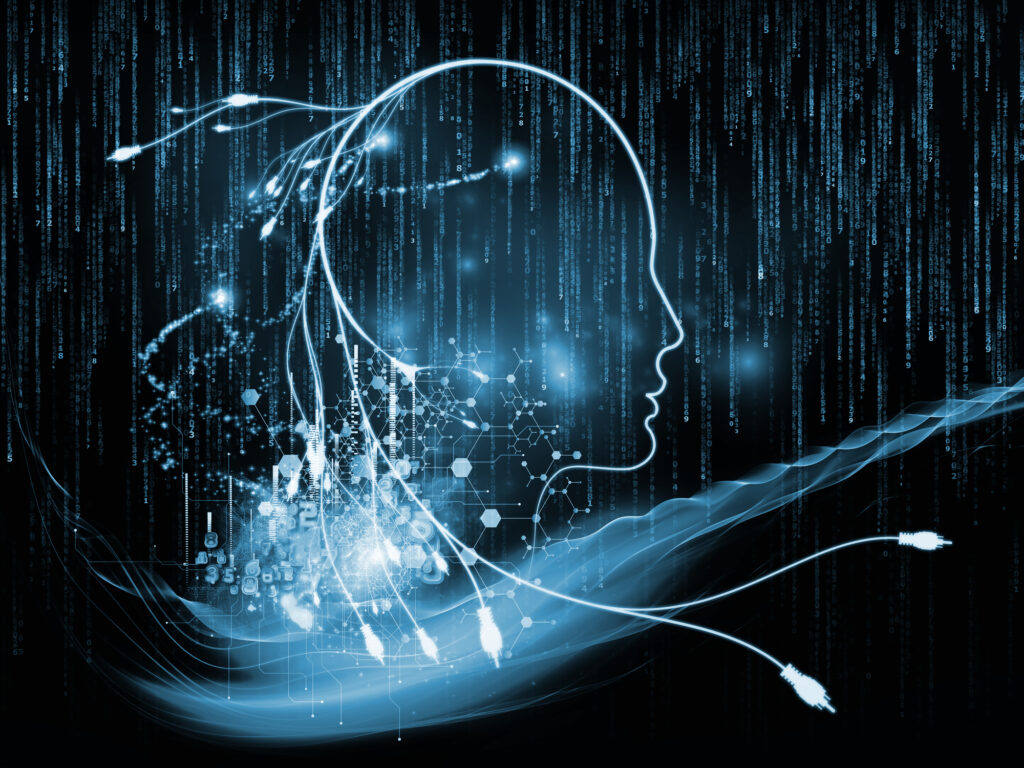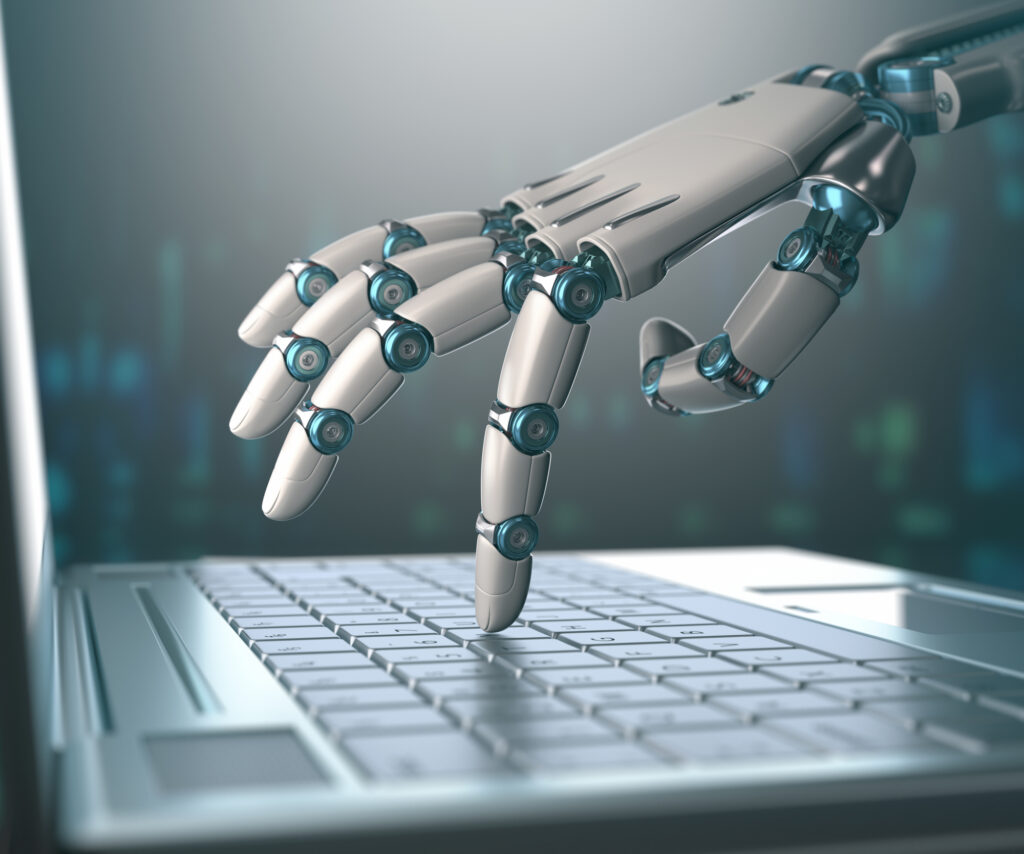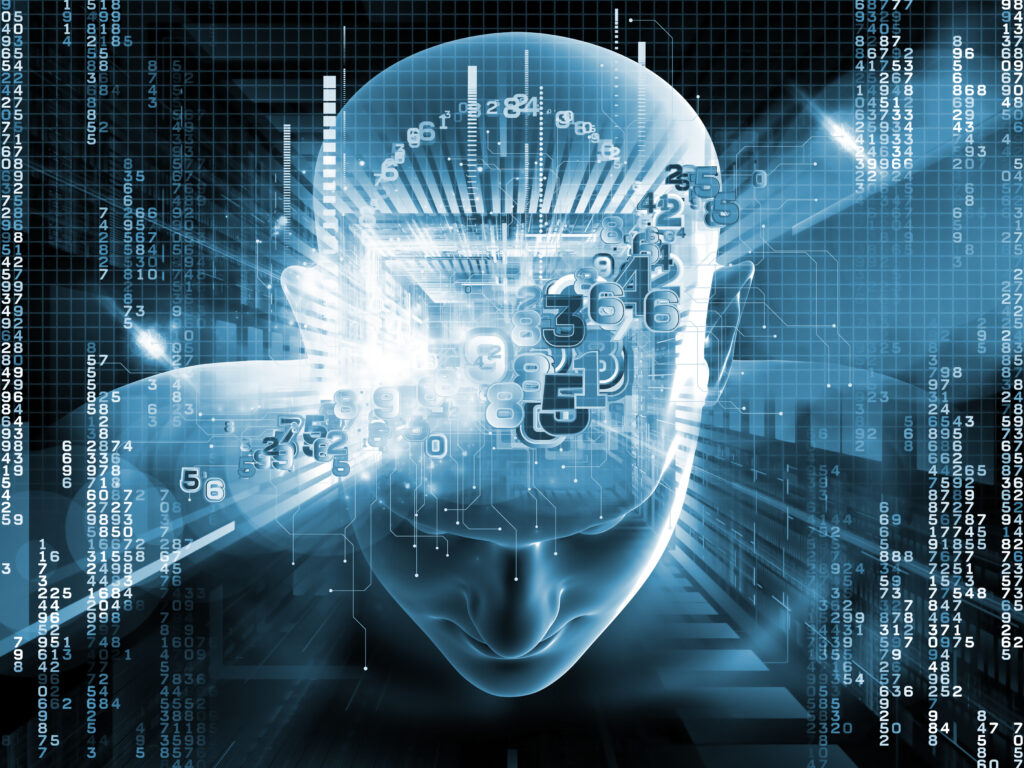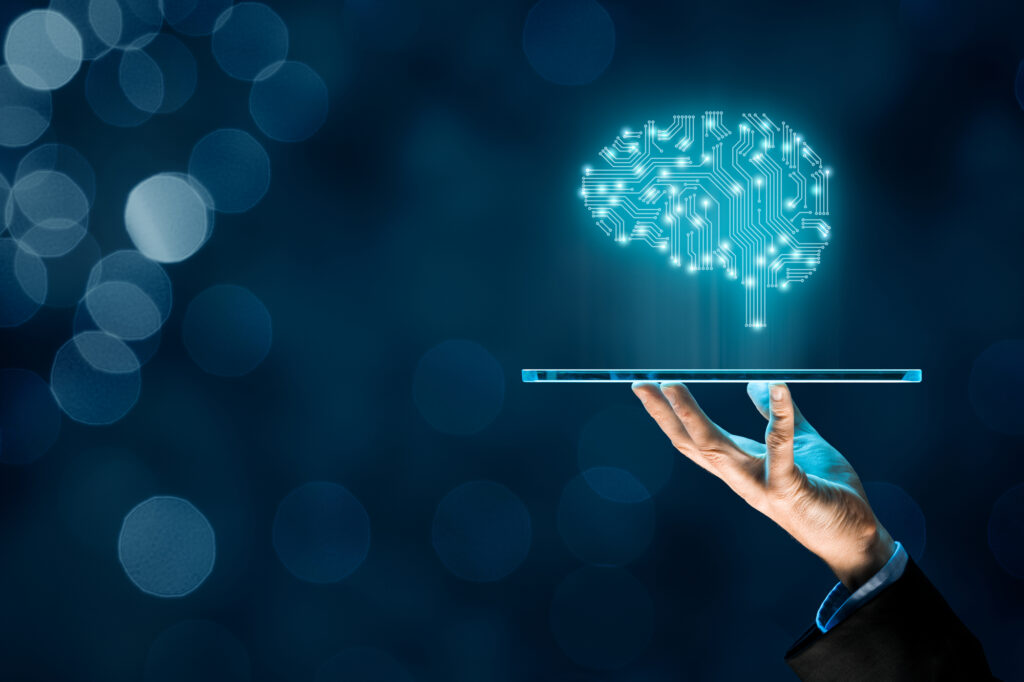Artificial intelligence has already arrived. What is its impact on business?
- Artificial intelligence is used in a variety of ways by businesses. This includes streamlining business processes and collecting data.
- Researchers aren’t sure exactly what artificial intelligence will mean for the future of businesses, especially about blue-collar work.
- AI will bring digital technology from the two-dimensional screen to the three-dimensional environment around an individual.
- This is an article for employees and business owners who want to know how artificial intelligence can transform the business sector.
You interact with artificial intelligence (AI) every day and you don’t realize it.
AI is still associated with dystopias in science fiction, but this perception is changing as AI becomes more prevalent and commonplace. Artificial intelligence has become a household word – sometimes even a household presence. (Hello, Alexa!) ).
AI is not a brand-new concept, but it has been accepted by the mainstream for a long time. It was 1956 when the modern field of AI began to exist, but it has taken decades for significant progress to be made in developing an AI system.
Artificial intelligence is used in many different ways by businesses. Most of us use AI regularly. Artificial intelligence has already revolutionized virtually all business processes in every industry, from the mundane to the stunning. AI is becoming more and more important to keep a competitive advantage as AI technologies become more prevalent.

What is AI?
It’s crucial to first define AI before examining its impact on the business world. The term “artificial intelligence” refers to a wide range of software programs that perform humanlike tasks, such as learning, planning, and solving problems. It’s like calling a vehicle a “car” because it is technically correct but doesn’t include any specifics. We need to look deeper into the business world to understand which type of AI is dominant.
Machine Learning
Machine learning is the most popular type of AI being developed for business today. Machine learning is used to quickly process large quantities of data. These AIs are algorithms that appear to “learn over time”.
You can improve a machine learning algorithm’s modeling by feeding it more data. Machine learning can be used to put vast amounts of data, captured by connected devices or the Internet of Things, into an understandable context for humans.
If you are in charge of a manufacturing facility, for example, your machines are likely connected to the network. The connected devices send a continuous stream of information about the production, functionality, and other factors to a central place. It’s simply too much information for humans to wade through, and even if we could, most patterns would be missed.
Machine learning can analyze data in real time, identifying anomalies and patterns. A machine-learning algorithm will detect if a manufacturing machine is operating at reduced capacity and alert decision-makers to the need for preventive maintenance.
Machine learning is a broad term. Deep learning is a result of the development of artificial neuron networks, an interconnected network of artificial intelligence nodes.
Did You Know?
Machine learning can be used to put vast amounts of data, captured by connected devices or the Internet of Things, into a context that is digestible for humans.
Deep Learning
Deep learning is a more advanced version of machine learning that uses neural networks for nonlinear reasoning. Deep learning is essential for performing advanced functions, such as fraud detection. This is done by analyzing many factors simultaneously.
For self-driving vehicles to function, it is necessary to identify, analyze and respond to several factors simultaneously. Deep learning algorithms help self-driving vehicles contextualize the information they receive from their sensors. This includes the distance to other objects, speed of movement, and a forecast of where the car will be in five to ten seconds. This information is calculated all at once, to help self-driving cars make decisions such as when to change lanes.
Deep learning is likely to become more popular in the business world. Deep learning algorithms continue to improve as they receive more data, unlike older machine-learning models that tend to plateau once a certain volume of data is captured. Deep learning models become more detailed and scalable. You could say they are independent.

AI in business today
Artificial intelligence is viewed as an aid to human intelligence. AI is currently unable to perform commonsense tasks in the real world. However, it can process and analyze vast amounts of data faster than any human brain. Artificial intelligence software will then synthesize courses of action, and present them to a human user. AI can simulate the possible consequences of every step, and help streamline the decision-making process.
Amir Husain is the founder and CEO of SparkCognition, a machine-learning firm. He said that artificial intelligence was like the second coming. It’s software that can make decisions by itself, and act in situations that the programmer hasn’t anticipated. Artificial intelligence is more flexible in its decision-making abilities than traditional software.
AI is highly useful in many different industries. It can help visitors and employees navigate a corporate campus or perform a complex task like monitoring a turbine to determine when it needs repairs.
AI: Common Uses
Machine learning, cybersecurity, and customer relationship management are some of the standard AI applications.
Machine Learning
In systems that collect vast amounts of information, machine learning is often used. Smart energy management systems, for example, collect data via sensors attached to assets. Machine-learning algorithms contextualize the data and deliver it to decision-makers in your company to help them better understand energy consumption and maintenance needs.
Cybersecurity
Husain stated that artificial intelligence can be a valuable ally in the search for weaknesses in computer network defenses. AI systems, believe it or not, can identify a cyberattack as well as cyber threats by monitoring patterns in data input. It can then go back and find the source of a cyberattack, helping to prevent future threats. This extra set of eyes, which is as diligent as AI and as continuous as it is, will be a huge benefit to your infrastructure.
Husain said that the scale and complexity of these problems meant there were not enough cybersecurity experts available to tackle them. Artificial intelligence also plays a growing role in this area.
Customer Relationship Management
Artificial intelligence (AI) is changing CRM systems. For software programs like Zoho and Salesforce, it takes a lot of human input to keep them accurate and current. When AI is applied to these platforms, the CRM becomes a self-updating, auto-correcting system.
In the financial industry, AI is being used to improve customer relations. Flybits CEO Dr. Hossein Rahnama and visiting professor from the Massachusetts Institute of Technology worked with TD Bank on integrating AI into regular banking operations.
Rahnama explained that the technology would send a personalized message to a person walking past a branch inviting them to renew their purchase. If you are looking at a house for sale, and spend more than 10 mins there, you will receive a potential mortgage offer.

Internet data and research
Artificial intelligence analyzes a large amount of data to recognize patterns in search behavior and give users more relevant information about their situation. Users will be able to customize their experience as AI technology advances and people use more devices. Small businesses will benefit greatly from this, as they can target a specific audience.
Rahnama said, “We don’t expect the user to be constantly on a search engine Googling whatever they need.” The paradigm has changed in terms of how information is delivered to the user at the appropriate time.
Digital Personal Assistants
Artificial intelligence can be used to provide a better experience for customers. It can transform your business from the inside out. AI bots are useful as personal assistants that can help you manage your email, your calendar and provide suggestions for streamlining your processes.
These AI assistants can be programmed to answer customer questions via chat or phone. All these small tasks can make a big difference, giving you more time to implement strategies for growing your business.
Key Takeaway
Artificial intelligence is often seen as an aid to human intelligence and creativity, rather than a replacement. Artificial intelligence can be used by humans to simulate possible outcomes and streamline their decision-making processes.
AI: The Future of AI
What might the future hold for artificial intelligence? Although it’s difficult to predict how technology will evolve, most experts believe that computers will be able to perform these “commonsense tasks” with greater ease. Robots will be extremely useful to us in our everyday lives.
“AI has made what was previously considered impossible, such as driverless cars, possible,” said Russell Glenister. Russell Glenister is the CEO and founder of Curation Zone. “Driverless vehicles are only possible because we have access to large amounts of training data, and fast GPUs. These are the two key enablers. For driverless cars to be trained, a large amount of accurate data must be collected, and training takes place quickly. “Five years ago, processors were too slow. But the introduction of GPUs has made everything possible.”
Glenister said that graphics processing units (GPUs), which are used to run artificial intelligence software, will only get faster.
He said that “fast processes and lots of clean data is the key to success in AI.”
Dr. Nathan Wilson is the co-founder and chief technology officer of Nara Logics. He believes that AI will revolutionize everyday activities such as dining. Wilson said that restaurants could use AI to determine the music they play depending on the tastes of their guests. Artificial intelligence can even change the look of wallpaper depending on the aesthetic preferences that the crowd is likely to have.
Rahnama, a futurist, predicted that AI would transform digital technology from the two-dimensional screen-based form to which we have become accustomed. He predicts that the main user interface will be the physical environment around an individual.
Rahnama explained that “we’ve always relied upon a two-dimensional screen to play games, interact with webpages or read e-books.” The display will no longer be the primary interface, but the environment. This is what artificial intelligence combined with [the Internet of Things] will bring about. People will design experiences around these technologies, whether they are in connected boardrooms or buildings. These are 3D experiences that you can feel.
Did You Know?
AI will transform digital technology from a two-dimensional screen to a physical environment that surrounds an individual.

What does AI mean to the worker?
All these new AI applications raise the question: will machines replace humans? It’s still a jury call: some experts deny AI will automate enough jobs to make millions of people unemployed. Others see it as an urgent problem.
Rahnama stated that “the structure is changing but artificial intelligence does not replace jobs essentially.” It allows us to truly create a knowledge economy and leverage this to create better automation to improve the quality of life. If you’re worried about robots and artificial intelligence replacing jobs, I believe it will be algorithms that replace white-collar workers such as lawyers, business analysts, and hedge fund managers.
Experts agree that there are certain trends to expect.
AI will create jobs?
Some experts think that AI will create more jobs, at least in the short term, once it is fully integrated into the workplace.
Wilson says that the shift to AI-based systems is likely to create jobs in the economy, which will facilitate the transition.
He said that artificial intelligence would create more wealth in the future than it would destroy, but it wouldn’t be distributed equitably, at least not initially. Changes will be felt subliminally and not in a blatant way. The robot will not sit at the desk of a tax accountant one day. The next time a tax accountant looks for a new job, they will have a harder time finding one.
Wilson predicted that AI will fragment workflows in the workplace, resulting in many jobs for humans to integrate these workflows.
What happens after the transition?
This is a process that will take many years, if not even decades to complete across all sectors of the workforce. These projections are difficult to pinpoint, but other experts, like Husain, are concerned that, once AI is ubiquitous, the jobs that already exist (and those that will soon be created) could start to disappear.
Husain wonders, therefore, where these workers will end up in the future. In the past, it was possible to switch from agriculture to manufacturing and then to services. This is no longer the case. Why? “The industry has been robotized and we can see that automation is more economical.”
Husain cited self-driving cars and AI concierges such as Siri and Cortana, saying that, as these technologies improved, they could be used to eliminate up to 8 million jobs alone in the U.S.
When all of these jobs disappear, we must ask ourselves, “What makes us productive?” What is productivity? ” he continued. Now we are confronting the reality of change and re-examining society’s assumptions. We need to think hard about it and determine what makes us productive, and what the value of people is in society. This debate must be held quickly because technology will not wait.
The shift towards more specialized skills
It’s unlikely all jobs will be eliminated as AI is integrated into the workplace. Many experts predict that the future workforce will be more specialized. These roles require more of the skills that automation cannot (yet).
There will always be people needed in the workplace, but as technology advances, their roles could change. Demand for certain skills will change, and some of these jobs may require more advanced technical skills.
Artificial Intelligence is the Future
Artificial intelligence is a vital part of the future, whether it’s rosy, rocky, or somewhere in between. This technology will lead to new startups, a variety of consumer applications, and the displacement of some jobs. Artificial intelligence, along with the Internet of Things and the Internet of Things, has the potential of transforming the economy. However, its exact impact is yet to be determined.